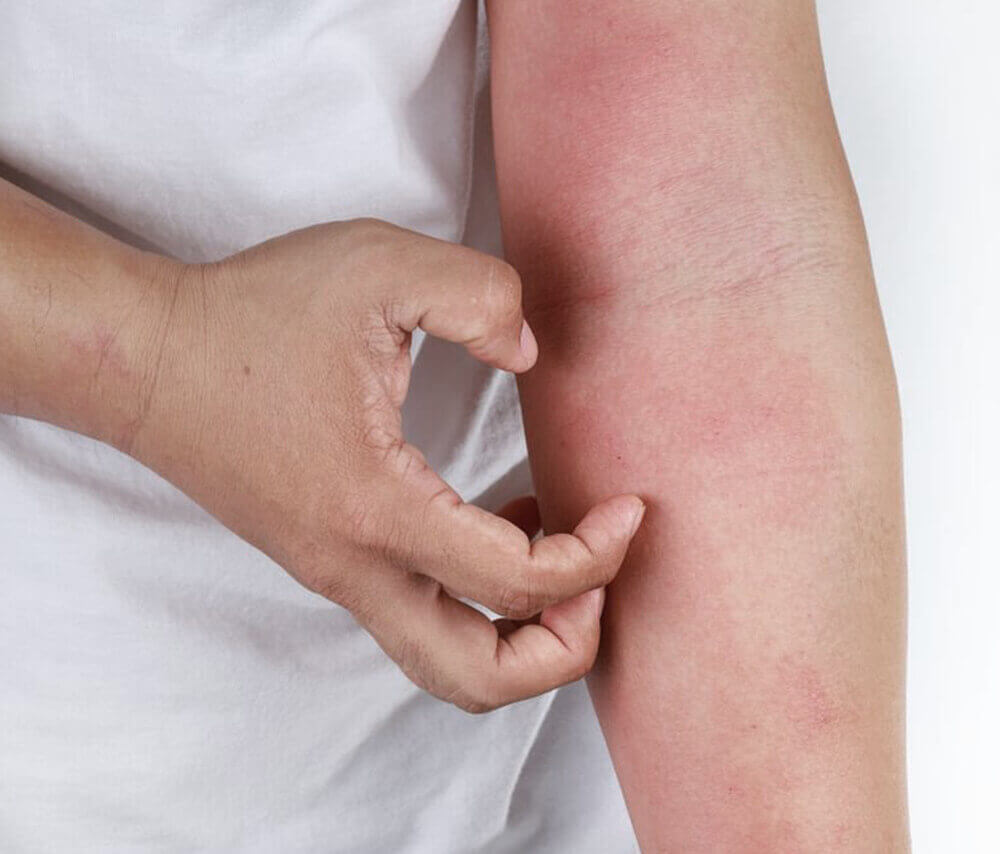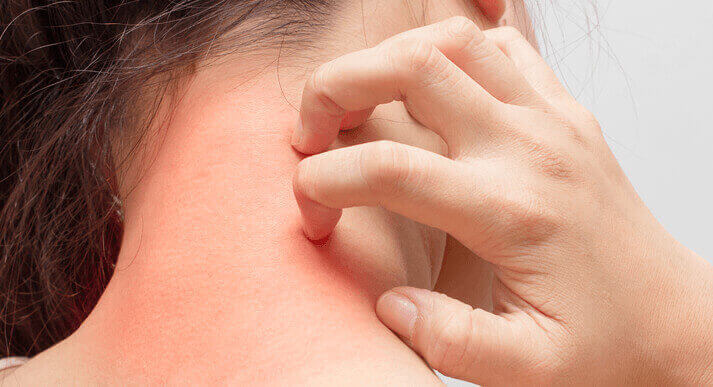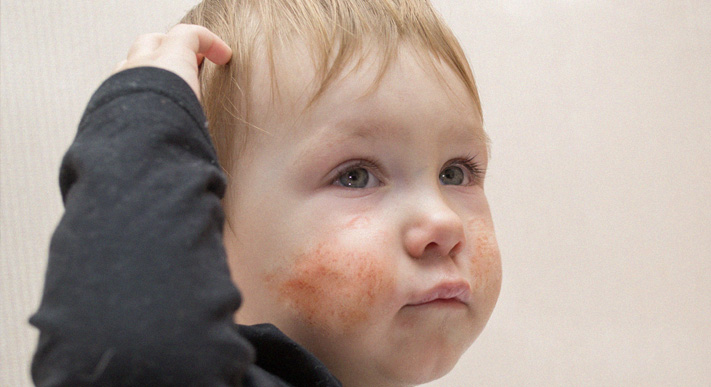
ATOPIC ECZEMA (ALSO KNOWN AS ATOPIC DERMATITIS) IS THE MOST COMMON chronic inflammatory skin disease affecting 20 percent of school going children in Singapore and three percent of adults worldwide. Significant impairment in the quality of life results from poor control as a result of itch and disturbed sleep. Conventional treatments for eczema include frequent generous application of moisturisers, local application of topical steroids (cortisones), wet wrap techniques and oral treatment in resistant disease (cyclosporine or azathioprine). Phototherapy and aggressive treatment of skin infection with antibiotics are also used. With increasing evidence about the underlying skin defects in atopic eczema, exciting new treatments are being explored in the treatment of this otherwise debilitating skin condition.
Skin Barrier Dysfunction in Atopic Eczema
It is now recognized that the skin in patients with atopic eczema are deficient in various lipids and
proteins that have crucial functions in skin barrier and hydration. Genetic research in atopic eczema
has also provided further evidence for skin barrier defects in atopic eczema. A significant
association has been found between atopic eczema and loss of function in the filaggrin gene.
Abnormalities in filaggrin gene expression results in defects in the structure and function of the
stratum corneum, which forms the outermost layer of the human skin. A defective skin barrier in
atopic eczema predisposes to external triggers of inflammation like allergens and inflammation.
New Therapies and Regimes for Atopic Eczema
The recent advance in atopic eczema treatment is the use of an innovative class of barrier therapy.
The rationale underlying barrier therapy is that mending the defective epidermal barrier in atopic
eczema prevents environmental triggers from penetrating the skin barrier defects. Several of these
topical agents purportedly assist in the restoration of the epidermal barrier in eczema through their
various ingredients including hyaluronic acid, glycyrrhetinic acid, ceramides and fatty acids..
Although promising in initial studies, the true benefits from their routine long term use in eczema
await further scientific trials.
There has been an increased awareness and use of topical immunomodulators (calcineurin inhibitors) in
atopic eczema. These topicals do not contain cortisones and thus avoid the concerns from steroid
overuse including thinning and weakening of the skin.. The safety and efficacy of these topical
calcineurin inhibitors, examples of which are tacrolimus and pimecrolimus, have been demonstrated in
many clinical trials. Patients must be counselled about a transient stinging sensation in the first
week of use.
The proactive therapy of eczema has also emerged as a possible method to prolong a disease- free
period in eczema. This regime consists of twice weekly applications of calcineurin inhibitors (like
tacrolimus and pimecrolimus) after eczema has been cleared. This will continue for a period of few
months. The rationale for this proactive approach is to try to eliminate remaining inflammation
within the normal looking treated skin to reduce flare-ups without risking side effects from use of
steroids. In conventional treatment, there is often under-treatment on the part of the patient
because of concerns over side effects from steroid use thereby resulting in more frequent flare-up of
eczema.
Many other novel therapies which help rebuild the barrier defects, protect against infection and
relief of itch in atopic eczema are on the horizon. Patients and physicians can now look forward to
these emerging approaches and new therapies for the treatment of atopic eczema.
Our clinic offers a wide range of services dedicated to treating all types of skin, hair, and nail concerns. From general dermatology treatments to advanced procedures and surgeries, our experienced team is able to personalise an effective treatment plan for every patient.




1 Grange Road #06-04, Orchard Building, Singapore 239693
Main Line: (65) 6734 1411 Fax: (65) 6235 5900 Email: enquiry@specialistskin.com.sg
Mon - Fri: 8:30am - 5:00pm Sat: 8:00am - 1:00pm
Closed on Sundays